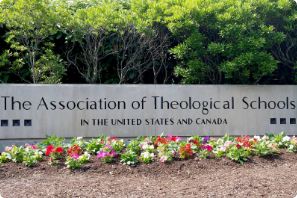What the Initiative Offers
This initiative is collaborative, adaptive, and grounded in the lived realities of ATS member schools. It includes six major areas of work:
1. Learning from the Past
Compiling and evaluating past diversity-related efforts across ATS and across theological education to identify what has worked, what hasn’t, and where gaps remain. This includes
follow-ups with schools, resource curation, and the development of new tools for immediate use.
2. Mapping Needs and Opportunities
Conducting a comprehensive needs assessment across the ATS membership. This includes data analysis, stakeholder interviews, and contextual mapping to understand where schools are now, where
they want to go, and what strategies will help them get there. Each participating school will help define its own key performance indicators (KPIs).
3. Supporting Member Schools
Offering grants, learning modules, peer groups, and targeted interventions to help schools build capacity in serving diverse student populations according to schools’ missions,
theological understandings, and the constituencies that they serve. Grant applications will be open to all schools that seek to address the priorities of the initiative, and grantees will
reflect the diversity of ATS member schools and their various understandings and approaches of how to best serve diverse student populations. All resources will be designed to be relevant,
contextual, and collaborative.
4. Strengthening ATS Staff and Structures
To serve schools effectively, ATS staff, boards, and committees will engage in their own capacity-building efforts. This includes education, onboarding modules, and internal assessments to
ensure our structures reflect our values and support our member schools.
5. Improving Organizational Frameworks
Reviewing and refining ATS programs, enhancing leadership pipelines, and developing new accreditation resources to help schools assess and communicate their diversity-related work.
6. Planning for the Future
This initiative is designed to be iterative. As it evolves, strategies will be refined and will inform future phases of work. The goal is to build a sustainable framework for ongoing support
and innovation across the ATS membership.







